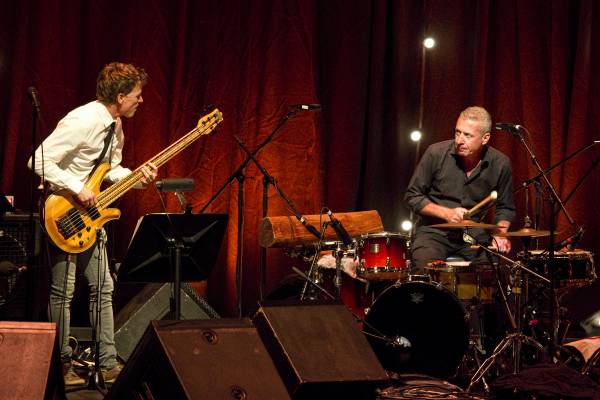City Recital Hall, January 9
6.5/10

Finally Sydney Festival returned Australia’s improvising musicians to its program. Ignoring the musical treasures in its own back yard has been a monumental failure of knowledge, taste, programming and balance. That it was Stu Hunter who broke the drought was heart-warming. The pianist’s first two suites had shown a singular gift for long-form composition, and this performance premiered a third suite, The Migration, featuring the cream of Australia’s jazz musicians.
Scored for nonet and two singers, the suite emphasised groove over soloing. A greater weight of sound lent it an often pummelling relentlessness, from which appeared occasional oases of a single instrument or perhaps a duet. That we were nearly half way through the 85-minute work before it came into sharper focus was partly a compositional issue, but much more a sonic one. The front-of-house sound varied between awful and tolerable, never attaining the clarity the music’s nuances demanded. This reached its nadir when singer Katie Noonan could barely be heard on Twelve Stages of Freedom, so Hunter’s words were lost entirely.
Tina Harrod’s more robust voice fared better on Requiem For Belief, although the lyrics were still murky. By contrast The River At Dusk had space: Julien Wilson’s bass clarinet and Matt Keegan’s alto clarinet harmonising a melody with the piano that was decorated with eerie slide guitar (Carl Dewhurst), bowed bass (Cameron Undy) and percussion (Simon Barker and Declan Kelly). This was an enchanted place that eventually succumbed to a dramatic solo from Barker, which in turn sowed the seeds for a gorgeous tune taken by muted trombone (James Greening) and trumpet (Phil Slater).
Hunter offered exquisite and enigmatic solo piano on Goodnight My Love, a prelude to the surging Mdu Moonshine with its burning trombone solo. The crowning glory was Land Of Gypsies, tying together a sinuous melody, exotic textures and wickedly funky sensibilities. Overall the improvising prowess of the band felt under-utilised, although more moments of exhilaration may well have been obscured by the muddy sound.